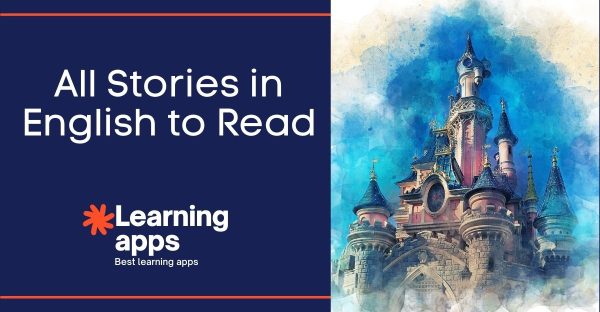There is no one answer to this question as it depends on which point of view you take. However, according to the Oxford English Dictionary, the English language began to diverge from its predecessor, Latin, in the late 4th century AD. This divergence is also referred to as Old English or Anglo-Saxon.
When Did English Language Start?
The answer is:
5th century CE
During this time period, the language evolved and changed significantly due to the influence of Germanic settlers who arrived in England. By the 10th century AD, Old English had largely been replaced by Middle English. This was a transitional stage between Old and Middle English and saw the introduction of new words and structures.
Middle English continued to be used until around 1500 AD when Modern English began to emerge. Modern English is still in use today and has undergone few changes since its inception.
Who made the English language?
There is no one answer to this question as the origins of the English language are unknown. However, some theories suggest that it may have originated in southern England or Scotland.
Another theory suggests that the English language was derived from Celtic languages. It is also possible that it was influenced by Germanic languages, such as Norse and Anglo-Saxon.
However, the most popular theory suggests that the English language was developed from Latin and Greek. This theory is based on the fact that Latin and Greek were the two main languages used in academia at the time when English began to take shape.
What is the history of the english language?
The English language is one of the oldest languages in the world. It is believed to have originated in Britain about 4,000 years ago. The first written records of the English language date back to around 600 AD.
During the Middle Ages, the English language became more widespread due to the spread of Christianity. This led to the development of standard English and the use of English in government, law, and business.
Today, English is used throughout the world and is one of the most widely spoken languages on Earth. It is also one of the six official languages of the United Nations.
How many dialects are there in English, and what do they look like?
There are around 120 dialects of English, and they vary a lot in terms of pronunciation, grammar, and vocabulary.
Some dialects are more formal than others, and some are more popular in certain parts of the country. Some dialects also have their own slang words that are only known by people who live in that particular area.
Overall, it’s a pretty diverse language!
All in all, the English language is very diverse and flexible. It’s a great way to communicate with people from all over the world!
What are some famous words in English?
The following list includes some of the most common and popular words in English:
What is the origin of “O Canada”?
The national anthem of Canada, O Canada, was written by Sir Adolphe-Basile Routhier in 1880. It
At some point in our lives, we’ve all thought about English. The sheer diversity of the language has to be one of the most amazing aspects; there are different pronunciations and dialects depending on where you live, just to start. English is also considered difficult to learn and master because of its scope as a global language. It’s important to understand how English began, so here’s a quick history lesson. Famous Quotes About Learning Languages
The English language is a West Germanic language that originated from the Anglo-Saxons in England.
The English language is an enchanting and expressive language that originated in the British Isles many centuries ago. The English language started with Angles and Saxons invading Britain, then when they invaded and stayed, they developed their own dialect of Old English or Anglo-Saxon language. Later on, Vikings invaded and had a significant impact on the language spoken by developing words such as stink, ill, leg. Initially, all Germanic languages were almost identical, but eventually they went on to develop into different ones. Modern English came about in the 10th century when old forms of English started to evolve and became more common. More English words are used today than ever before in the past and a lot of these new words have come from languages other than English. In the 1700s, many new words were added to the language. Words like tax, lawn, dinner and stuff came into use. Very importantly, the vocabulary of the English language has been expanding at a high rate.
The English language is one of the most widely spoken languages in the world and is the official language in over 60 countries.
If you want to start and grow a profitable digital coaching business, being fluent in English is very beneficial. It doesn’t matter if you are fluent by birth or by choice. Being fluent in the language of more than one country can give you a chance to promote your business with new people from other countries. If English is not your first language and you want to learn it as a second language, or improve on your fluency, we have an essential advice for you.
- Start by learning the basics. English has a lot of rules that can seem confusing at first. Make sure you learn the basics of grammar and pronunciation before moving on to more difficult concepts.
- Use a variety of resources. There are a lot of great resources out there for learning English, from textbooks to online programs to podcasts. Try out a few and see what works for you.
- Use your own images, music, and ideas. Think of what you are interested in or what you would like to see happening in the story.
The English language has evolved over the years and has been influenced by other languages such as French, Spanish, and German.
The English language has evolved over the years. To have a basic knowledge of this evolution, you must go back to Old English and the development of Proto-Germanic into Germanic languages and Anglo-Frisian dialects. After that period, almost all European literate societies used Latin as a literary language, especially within the Western Church. After the rise of the Puritans, English became the national language and the lingua franca throughout the British Empire. In the 19th century, scientific and mathematical ideas began to be translated into English. Nowadays English is widely used in business and everyday life. The English language is similar to German and French. As a result, most of the Germanic loanwords that entered the language through French are by now found in the English language too.
The English language is the primary language of business, education, and government in many countries.
The English language is one of the strongest languages in the world. As an English speaker, you can learn more than 270 million speakers worldwide. Use these benefits to your advantage and start growing a business today. If you need any help with the business, please contact us. English is the national language of over a hundred countries. Many people learn English to communicate with people around the world.
FAQs
– How did English become a global language?
“The most fascinating thing about English is that it was invented on the spot and in your face, quite unintentionally by various people speaking at different times and places. In fact, if you want to keep your understanding of the language, you must know its history.” – Professor Edwin A. Niederman.
– What dialect of Old English or Anglo-Saxon did the English language originate from?
The English language is a West Germanic language that started out as a dialect of Old English. In its early stages, it had almost the same alphabetical structure with minor changes compared to older forms of Anglo-Saxon. Anglo-Saxon (the earliest known variation of Old English) had actually been used in Britain before Alfred the Great decided to introduce English as the country’s primary language. This use was minimal, but mainly restricted to royal monuments and runic inscriptions. Later, French became.
– How many centuries ago did the English language originate?
The English language is about 9 centuries old. About 4 centuries ago, English speakers were not united under one government. That is why English has many dialects. In his article about the history of English, Paul Brians states that language change continues to this day, partly as a result of mass communications and standardization from the media. In recent years, social media has changed how we communicate and the new changes are increasingly seen in everyday speech. As each new form comes along – whether it be ‘.




